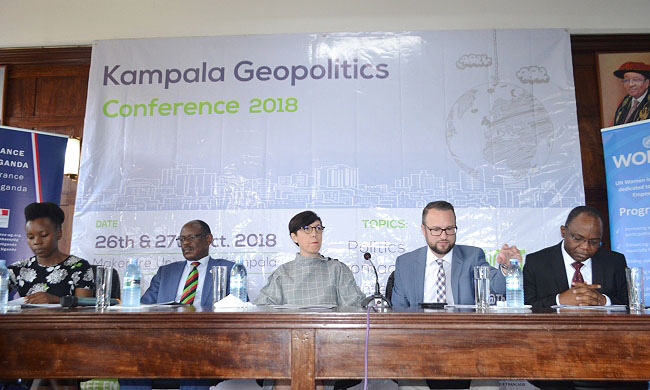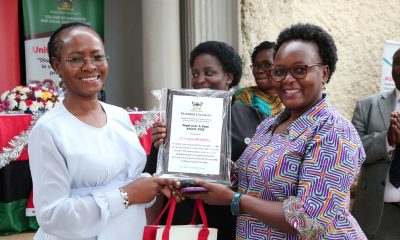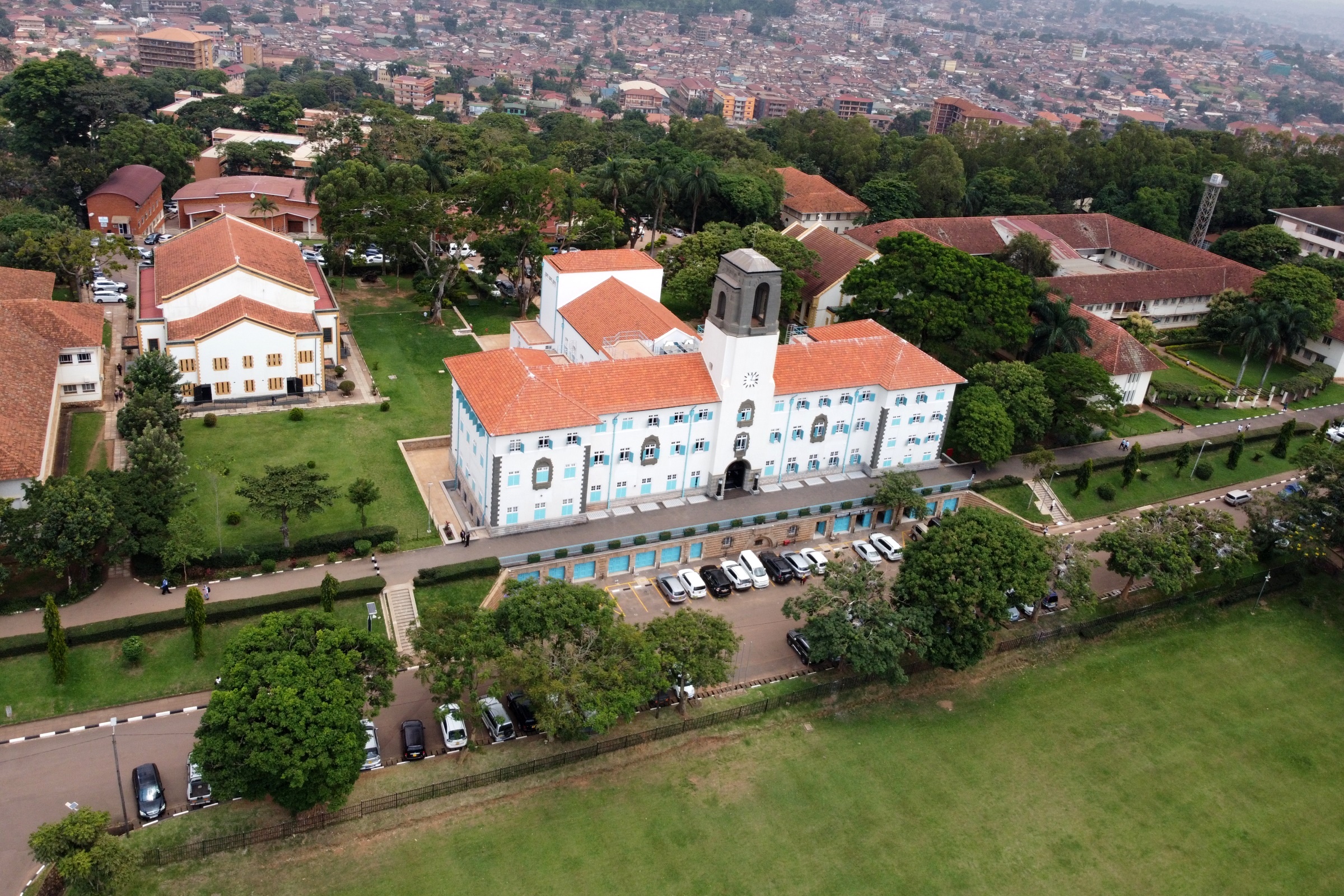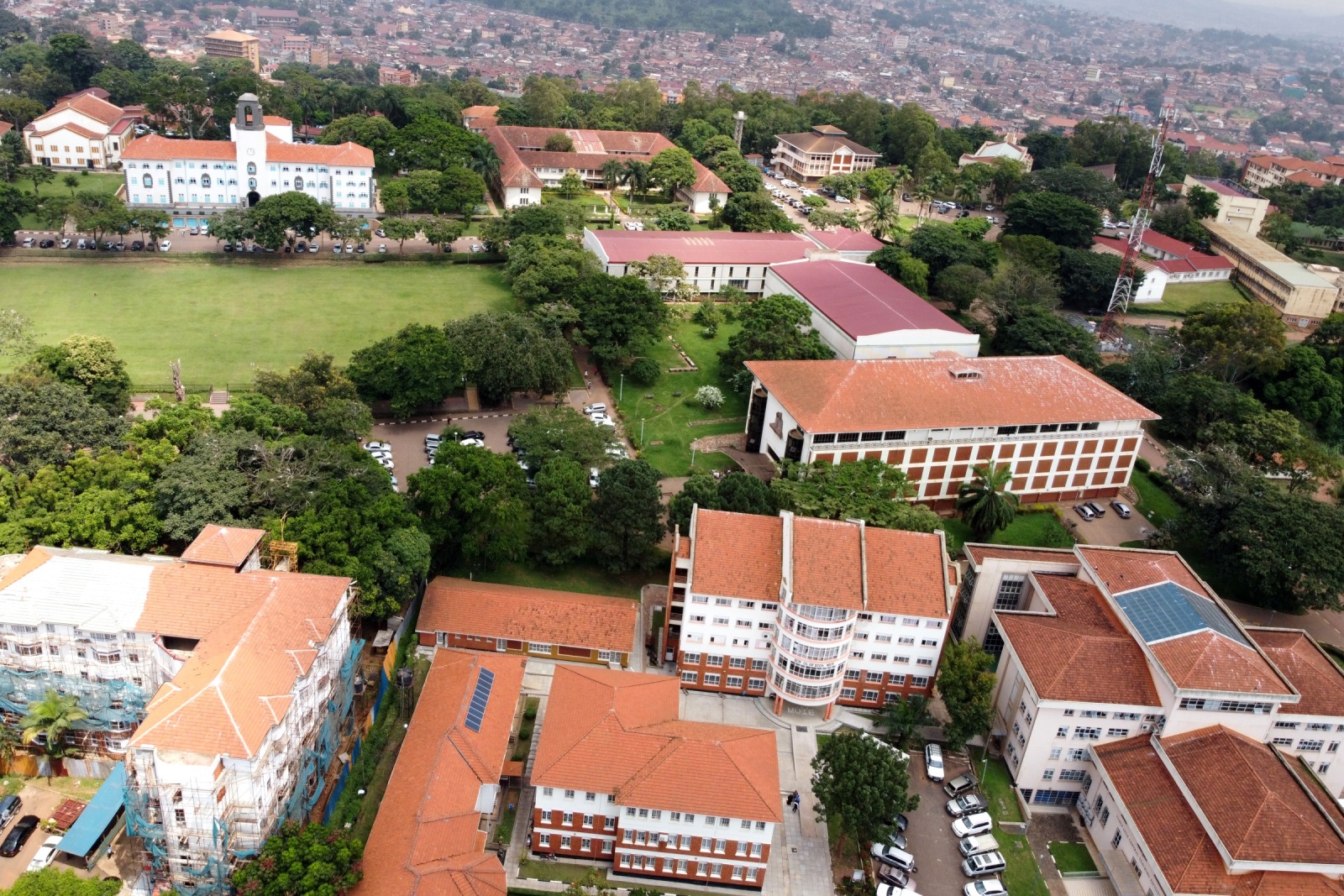The Embassy of France in Uganda in partnership with Makerere University, Konrad Adenauer-Stiftung (KAS), Alliance Française de Kampala (AFK), UN Women, Uganda and the Institute for International and Strategic Affairs (iRiS) is organizing the Kampala Geopolitics Conference. Scheduled to take place from 26th to 27th October 2018, the two-day conference aims at creating an interactive and dynamic platform for dialogue and free exchange of ideas cutting across contemporary local and international issues.
The Kampala Geopolitics Conference is bringing on board professors, researchers, politicians, diplomats, journalists, activists and key leaders to engage in an interactive debate and find solutions to the challenges affecting world’s political and international relations.

During the Press Conference held on Friday, 5th October 2018, in the Council Room, the Makerere University Vice Chancellor Prof. Barnabas Nawangwe extended an open invitation to stakeholders, policymakers, politicians, Makerere University staff and students and members of the general public to attend the Kampala Geopolitics Conference.
“We are re-launching our debates by hosting the Kampala Geopolitics Conference. Over the years, Makerere University has maintained its reputation as the icon of debate among institutions of higher learning. Shortly after Uganda’s Independence in 1962, we hosted the First Makerere African Writers Conference of 1962, which was a milestone in African literature that directly addressed the legacy of colonialism. The conference attracted prominent writers such as Chinua Achebe, Wole Soyinka, Ezekiel Mphahlele, Lewis Nkosi, Ngugi wa Thiong’o and Rajat Neogy among others,” said the Vice Chancellor.

“The 1960s were dominated by icons such as the late Prof. Ali Mazrui who began his career at Makerere University. It was said that Prof. Mazrui’s Political debates in the Makerere University Main Hall often led some of the attendees to skip lunch rather than miss out on the wisdom from the critical thinker and Professor of Political Science. Other gallant academicians that went on to shape academic debate over the years include but are not limited to Prof. Mahmood Mamdani, Rt. Hon. Apolo Robin Nsibambi, Prof. James Rubadiri among others,” he added.
Prof. Nawangwe commended Makerere University Professors and academic staff that graciously accepted to serve as panelists and moderators during the Conference. He acknowledged, the Kampala Geopolitics Conference Steering Committee at Makerere University chaired by Dr. Eria Hisali for the job well done.

Preceding the Media Briefing, on Wednesday 25th July 2018, the Embassy of France in Uganda together with Makerere University, Konrad Adenauer-Stiftung (KAS), Alliance Française de Kampala (AFK), UN Women, Uganda and the Institute for International and Strategic Affairs (iRiS) had signed a Memorandum of Understanding (MoU) to organize the Kampala Geopolitics Conference. The purpose of the Conference as stipulated in the MoU, is to provide a platform for building strong networks of expertise from Africa, France and Germany by engaging in a free flow of ideas and open discussions in a creative yet informative way while contributing to generation of knowledge.
Speaking at the Press Conference on 6th October 2018, the Ambassador of France to Uganda H.E Stéphanie Rivoal confirmed the team’s readiness for the event. She also mentioned that the debates will be held in form of round tables, interactive and creative discussion on issues of global concern.

“The conference will start on Friday, 26th October 2018 at 09:00am. Interactive discussions will continue on Saturday, 27th October 2018 from 09:00am up to 5:30pm. We expect 100 speakers from various countries including France, Germany, South Africa, Kenya, South Sudan and Uganda to discuss 21 topics vital to global concerns. The topics selected, cut across the global issues such as politics, economics, health, demography, gender, environment, youth, social issues in the Africa and the global context,” said stated.
According to the Ambassador, a vibrant team; including Daniel Omara, Sarah Kagingo, Pablo and Ife Piankhy will extemporize a blitz on the geopolitics themes; providing a platform upon which respective professors and experts will critically analyse the topics.

Other members present during the Press Conference included: the Country Representative of Konrad Adenauer-Stiftung, Mr. Mathias Kamp; the Country Representative of UN Women-Uganda, Dr. Maximu Houinato; the Cultural Coordinator- Alliance Française de Kampala, Ms. Charity Atukunda; the Focal Person of Makerere University Kampala Geopolitics Conference Steering Committee Dr. Eria Hisali; the Principal Public Relations Officer- Makerere University, Ms. Ritah Namisango; a team from the French Embassy and Konrad Adenauer-Stiftung.
The Friday activities will climax with a concert at 5:30pm in the Makerere University Freedom Square. The Concert will feature Jose Chameleon as the guest artist, DJ Slick Stuart and Roja plus a live band A Ka Dope. Other activities that will take place during the days’ conference include: art performances, market place of art and ideas, live studio by Media challenge Initiative, exhibitions by artists, innovators and startups, students and youth-led initiatives and a democracy expo by Konrad Adenauer-Stiftung, Alliance Française De Kampala and Campus France.
Article by Mak Public Relations Office


 General1 week ago
General1 week ago
 General6 days ago
General6 days ago
 General1 week ago
General1 week ago
 General2 weeks ago
General2 weeks ago
 Humanities & Social Sciences2 weeks ago
Humanities & Social Sciences2 weeks ago







